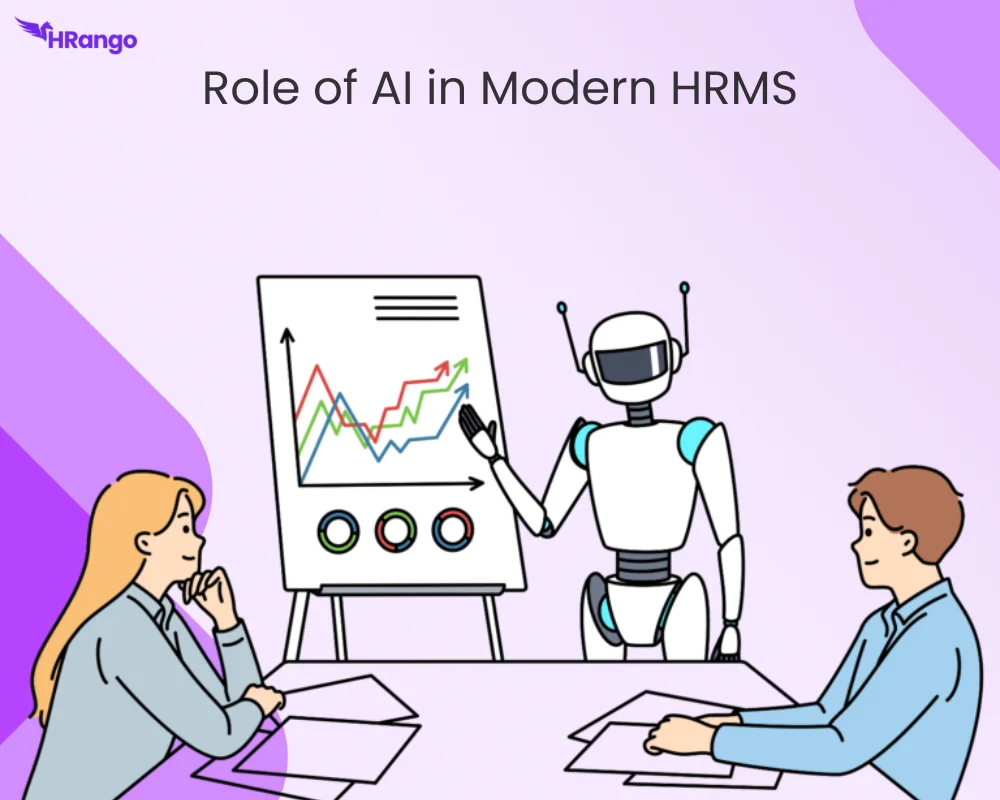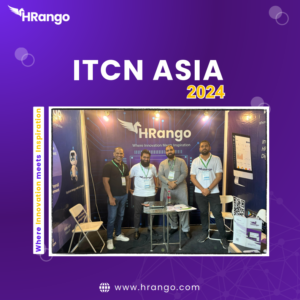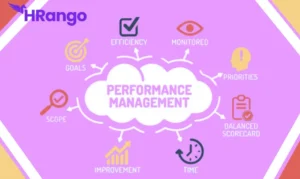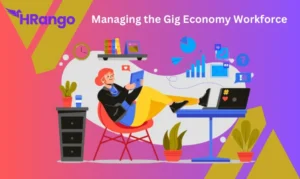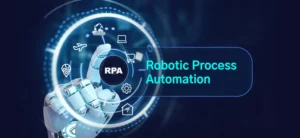Artificial Intelligence (AI) is revolutionizing Human Resource Management Systems by automating processes. Modern HRMS enhances decision-making and improves employee experiences. Here are the key roles AI plays in modern HRMS:
1. Automation of Routine Tasks in Modern HRMS
Recruitment:
- Resume Screening: AI-powered HRMS can automatically scan resumes, highlighting top candidates based on predefined criteria. This significantly reduces the time spent on initial screenings (hRango | HR Management Systemn) (Software Advice).
- Interview Scheduling: AI systems can handle interview scheduling, sending invites, and reminders to candidates, thus streamlining the recruitment process.
Payroll and Compliance:
- Payroll Processing: AI can automate payroll calculations, tax deductions, and compliance checks, ensuring accuracy and timeliness (GetApp).
- Regulatory Compliance: AI helps in monitoring compliance with labor laws and regulations, providing alerts and updates to ensure adherence.
2. Enhanced Decision-Making in Modern HRMS
Data-Driven Insights:
- Performance Management: AI analyzes employee performance data to provide insights into productivity, identify high performers, and suggest areas for improvement (Capterra).
- Predictive Analytics: AI can predict employee turnover, helping HR teams take proactive measures to retain top talent (Software Advice).
Personalized Employee Experiences:
- Learning and Development: AI recommends personalized training programs based on individual career goals and performance metrics (hRango | HR Management Systemn).
- Career Pathing: AI assists in creating customized career development plans, aligning employee aspirations with organizational goals.
3. Improved Employee Engagement in Modern HRMS
Chatbots and Virtual Assistants:
- Employee Queries: AI-driven chatbots provide instant responses to employee queries about HR policies, leave balances, and other routine questions (hRango | HR Management Systemn).
- Onboarding Assistance: Virtual assistants guide new hires through the onboarding process, offering support and answering questions in real-time.
Sentiment Analysis:
- Employee Feedback: AI analyzes employee feedback from surveys and other communication channels to gauge sentiment and identify areas needing attention (Software Advice).
- Engagement Metrics: AI tools track engagement levels and suggest interventions to improve morale and productivity.
4. Talent Management in Modern HRMS
Succession Planning:
- Identifying Successors: AI helps identify potential successors for key roles by analyzing performance data, skills, and career trajectories (Capterra).
- Development Plans: AI recommends training and development plans to prepare identified successors for future roles.
Recruitment:
- Diversity Hiring: AI can help mitigate biases in hiring processes, promoting diversity by focusing on skills and qualifications rather than personal characteristics (GetApp).
Conclusion
AI in HRMS enhances efficiency, decision-making, and employee engagement by automating routine tasks, providing data-driven insights, and personalizing employee experiences. As AI continues to evolve, its integration into HRMS will further transform HR practices, making them more strategic and impactful.

